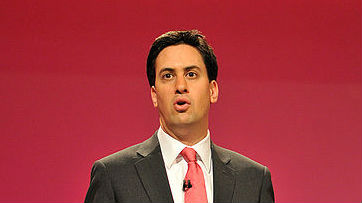What Labour’s Gains Mean

In Britain, the main Opposition Labour Party leader, Ed Miliband was pleased at his party’s strong progress in the mid term council elections in England – and especially Wales. Gaining well in excess of 800 councillors, while watching the wretched Nick Clegg (leader of the Liberal Democrats and a coalition partner with David Cameron) see his party squeezed until the pips squeak, must be particularly satisfying. Mid term blues caught Cameron and the Tories out, with a record breaking thirteen percent of votes going to Nigel Farage and his far Right UK Independence Party. The UKIP surge shows that that a lot of natural Tory supporters want some clear blue water. So the Coalition has been dealt a blow by Labour, which as a party at the last General Election seemed to be destined for the Knackers’ yard. Labour is back in power in a swathe of cities, including; Birmingham, Southampton, Plymouth, Reading, Norwich, Thurrock and Harlow. This is a solid achievement, that could have amounted to even more had Ken Livingstone not allowed himself to be cornered by his baroque tax arrangements. Livingstone’s loss in London to Boris Johnson, provided the only happy note for the Conservatives.
That said, Ed Miliband will also be pleased that the Scottish Nationalists have not made the inroads elsewhere in Scotland predicted of them, and that Labour’s performance North of the border mirrors that South of it. This ironically is something that may also please David Cameron, for his best hope of halting the Nationalist bandwagon careering towards Scottish independence, is a stronger Labour Party north of the border.
There is another reason why Ed Miliband can permit himself a smile or too, (although pray not the cheesy Cheshire cat grin of Tony Blair). For many of the Blairites, or ‘Bitterites’ as they have become known, who still abound in the upper reaches of the Labour Party, were rather hoping that their predictions would come true, and that Ed Miliband would perform poorly. Had he done so, we would already be hearing the siren calls for big brother David to return from across the water (yesterday David Miliband was apparently caught out tweeting enthusiastically about the ‘fantastic response’ to Labour on the doorstep, when he was in fact on a plane heading for the Middle East). The ‘Bitterites’ may start tongue wagging over Ken Livingstone and London, and blame Ed Miliband for endorsing Ken, but the fact that not a few of them publically denounced Livingstone – who was the official Labour candidate – has not advanced their stock amongst Labour’s foot soldiers. Others who might have been tempted, or rather ‘urged’ to eventually enter the fray against Ed Miliband, such as Ed Balls or wife Yvette Cooper, will have been restrained as well.
These results leave Miliband in a much stronger position in his party.
But let’s be clear, Ed Miliband and Labour still have some huge obstacles to overcome. While it is true that some voters are now prepared to forget what drove them away from Brown and Blair, these elections took place at a time of a second dip recession, rising unemployment, renewed skirmishing around the Murdoch empire and much else besides. If any self respecting opposition leader had failed to make headway at a propitious time such as this, he or she would deserve to be in very deep trouble. And none of the party leaders should be content with the low turn-out (around 32%) of voters in many areas. They need to ask themselves why so few people are connecting with politicians, and whether local elections are not seen as being important, because all of the power lies elsewhere in London – and Brussels. It could be, for instance, that the reason Labour did particularly well in Wales, is that each council was fought for on a local manifesto, drawn up without any interference from party bosses in Cardiff or London. When voters get a taste of real ‘localism’ they do appear to relish it.
Localism notwithstanding, Cameron’s hope and Ed Miliband’s fear is that these mid term elections will not translate into a General Election victory, if as the Governor of the Bank of England, Mervyn King says is true, and that an economic recovery is on its way. Cameron and the Conservatives can then claim that they got it right, and hope to be rewarded by people showering them, if not with affection, but with their votes. And then there are of course ‘events’, as Harold MacMillan would say. Back in 1981, Margaret Thatcher and the Conservatives were being trounced in the polls by Michael Foot and the Labour Party, but then along came the Falklands war, and the rest is, as they say, history. While history may not always repeat itself, both Cameron and Miliband will now be doing their level best to conjure something out of the hat that truly does enthuse voters in time for the election that really does count; the General Election in May 2015.





